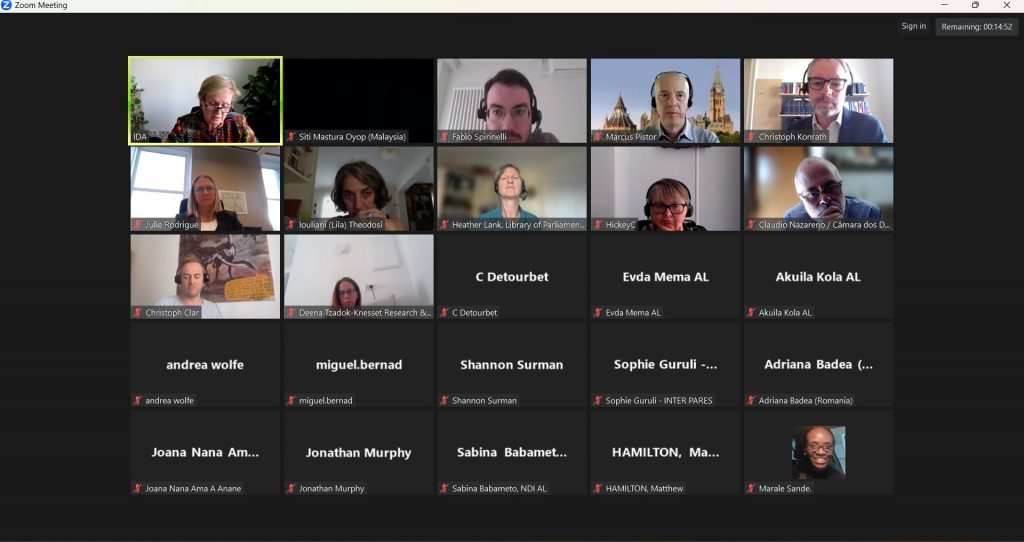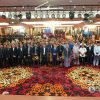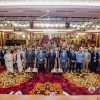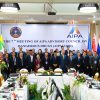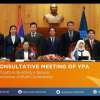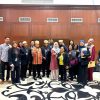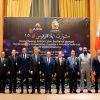20 September 2023 – AGORA Parliamentary Development Community of Practice, INTER PARES and UK’s Parliamentary Office of Science & Technology hosted and co-organized an online workshop on the topic of “Mapping and Connecting Parliamentary Research Services around the World” on 20 September 2023. Parliament of Malaysia was represented by Research Officers from Research and Library Division which also involved 130 representatives of parliamentary research services from 27 different countries. This online workshop commenced at 7:00 to 10:00 p.m. local time via the Zoom platform.
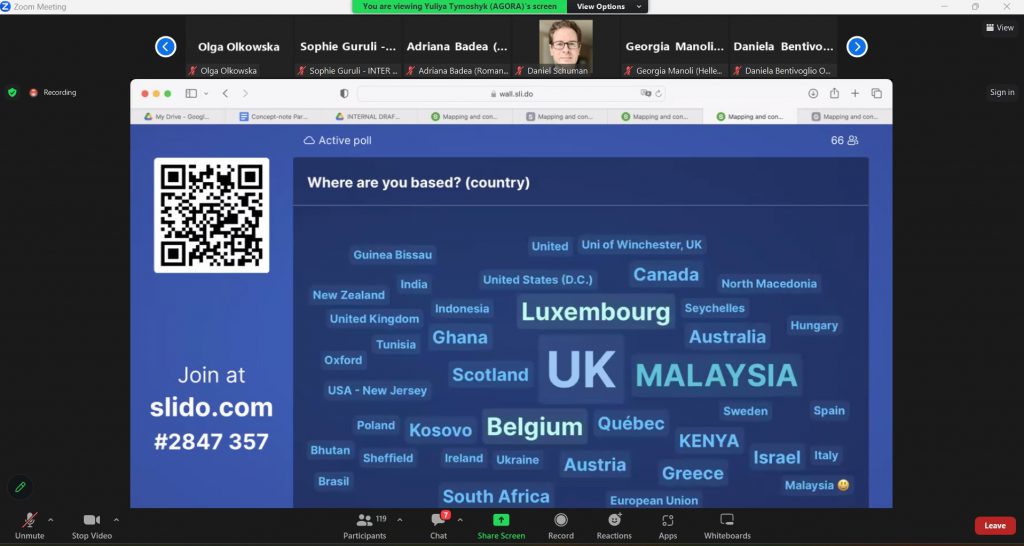
The objective of the workshop is to bring together parliamentary research, development practitioners and scholars on the work of parliamentary research services and their role in building strong parliaments around the world. Although parliamentary research and library services are an established department, their role and importance are still under-appreciated and poorly understood. Thus, this workshop served as a platform to strengthen the use of scientific evidence as concrete research evidence is vital for parliamentary debate, policy and legislation approval.
The programme started off with a brief introduction and welcoming address from Dr Jonathon Murphy, Head of Programme, INTER PARES and Ms. Lydia Harriss, Senior Advisor and Physical Sciences Lead, Parliamentary Office of Science & Technology (POST), House of Commons, United Kingdom.
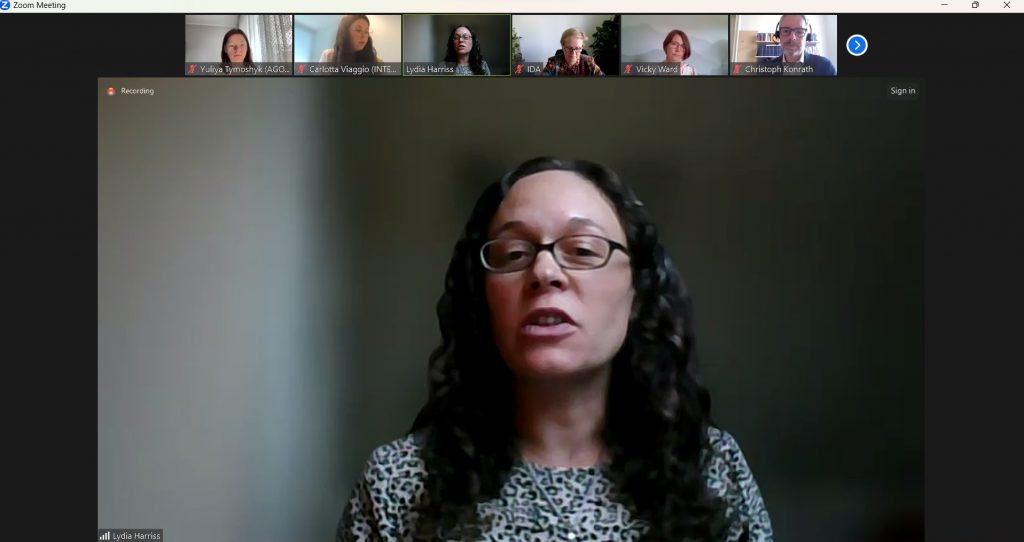
Parliamentary Research Services: What, Who, Where and Why
The first session was presented by Dr Vicky Ward from the University of St Andrews, Scotland and Dr Mark Monaghan from Loughborough University, who are both Parliamentary Academic Fellows of the UK’s POST. Their research work undertaken from January 2022 to January 2023 involved mapping the services that help the Parliaments across the world in accessing and harnessing the available research evidence. The data were collected from survey distribution and interviews with the targeted parliamentary research officers to get their insights and current practices according to the context that they are in. The research output is the creation of a global map of parliamentary research mechanism website to be explored by the viewers.
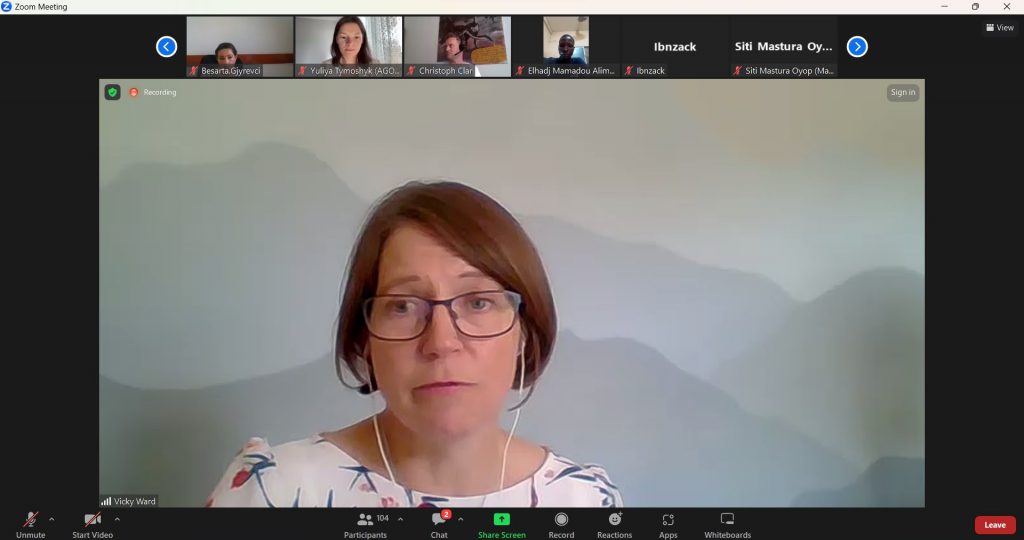
The second presenter was Dr Ida Keleman, the Coordinator of the Parliamentary Libraries, Research and Archives at the European Centre for Parliamentary Research and Documentation (ECPRD) and Head of the Parliamentary Research Service at the Hungarian National Assembly. She presented on the European landscape of parliamentary research services regarding the main activities in information exchange – comparative requests with regards to their area of interest in parliamentary libraries, research and archives.
The workshop’s participants were also divided into break-out rooms to reflect on the presented topics. Throughout the breakout session, some participants shared their respective parliamentary research as well as their own experiences and practices while understanding the key challenges faced by other Parliaments.
Engaging with Academic Research: A View from Parliamentary Research Services
This session provides an opportunity for the audience to learn on how parliamentary research services has been operating in other countries including Austria, Canada, Czech Republic, Ghana, and Pakistan. Dr. Christoph Konrath, the Head of the Department of Scientific Support and Coordination in Parliamentary Matters, and Dr. Christoph Clar, Expert, Parliamentary Administration, Austrian Parliament shared their insights from their nation-specific context. The following presentation was delivered by Dr. Lalita Acharya, Senior Director, Economics, Resources and Environment Division from the Library of Parliament, of Canada.
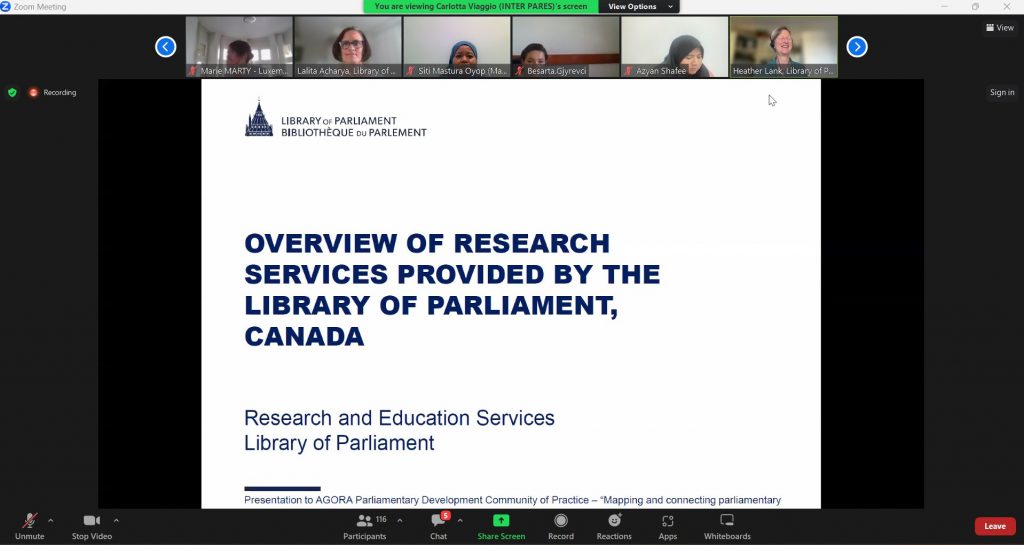
The Czech Republic was represented by Dr. Stepan Pechacek, the Director of the Parliamentary Institute who showed the differences between academic and parliamentary research. Next, Dr. Abraham Ibn Zackaria, Deputy Director of Research in the Parliament of Ghana presented on the factors inhibiting parliaments access and the use of academic research in Ghana and how to build relationships between parliament and the academic research community. The final presentation was from Professor Muhammad Rashid Mafzool Zaka, Director General (Research) and Founder Member of Pakistan Institute for Parliamentary Services who shared challenges as well as the best practices of synthesizing academic research and building the relationship with academic research community from the Pakistan’s perspectives.
Networking Lab: How to convert challenges to opportunities.
All participants were engaged in break-out groups and were allowed to choose from nine rooms with different topics; 1) Visibility, value and use of parliament research; 2) Accessing and managing information; 3) Capacity, demand and resource constraints; 4) Balancing depth and timeliness; 5) Professional development and career progression; 6) Evaluating the impact of research services; 7) Working across policy areas and cultures; 8) Maintaining impartiality; 9) Working with non-parliamentary agencies and academia.
Before the end of the workshop, Dr. Vicky Ward delivered the closing remark. Through this workshop, she encouraged and hoped that the participants will be able to reach out to each other to establish a community practice between the research and library division, Members of Parliament, and the Parliament as an organization with the sense of mutual learning.
By participating in the online workshop, research officers in Parliament of Malaysia can benefit from the following:
1. a platform to connect with peers, practitioners, and scholars from different parliaments and institutions, facilitating valuable networking opportunities such as collaboration on research projects, knowledge sharing, or joint initiatives with colleagues from other parliaments.2. gain a deeper understanding of the landscape of parliamentary research services worldwide, including their diversity and sophistication as well as the challenges faced.
3. enhance a research officer’s professional development and potentially open doors to new research opportunities in parliamentary research and development.
